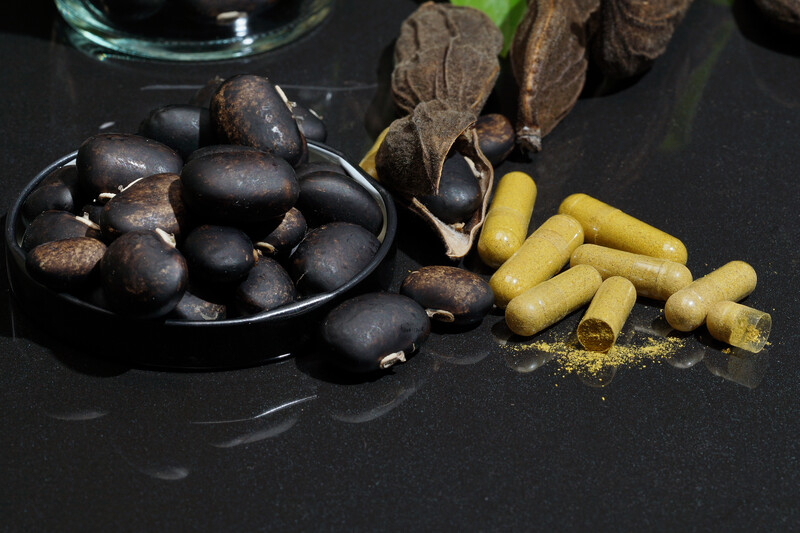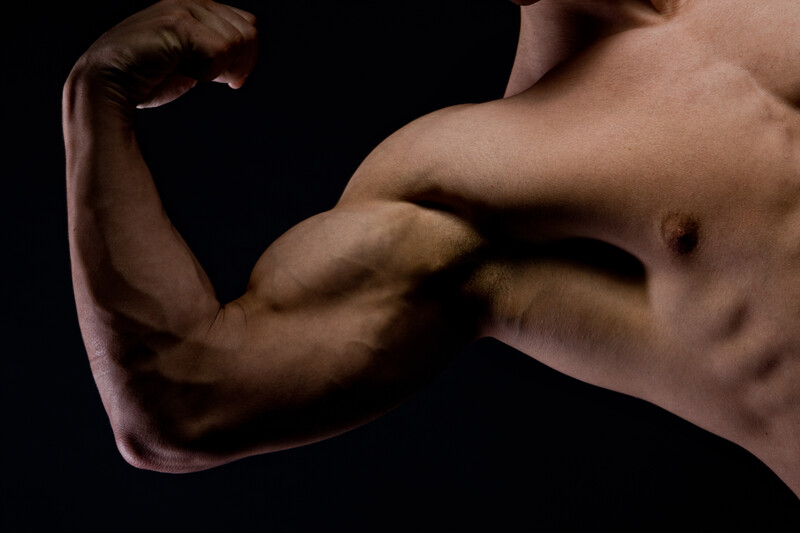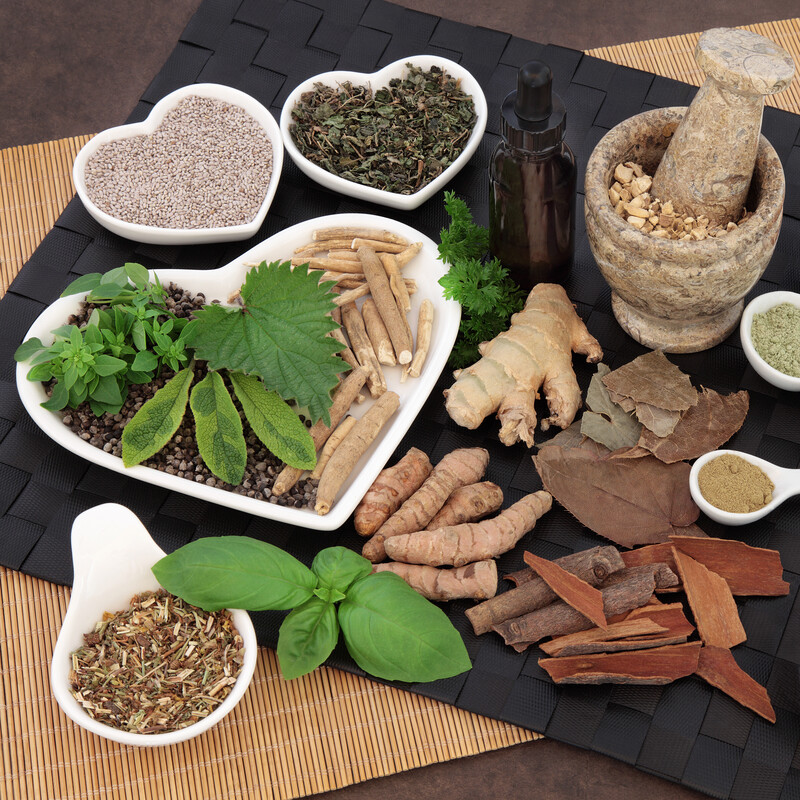(Article Medically Reviewed By Dr. Zach Hyde)
The Indian Bean that Boosts FREE Testosterone
If you operate on the basis that all the best testosterone-boosting supplements are hard to pronounce (ashwagandha comes to mind).
Then you should already expect Mucuna Pruriens to be well worth writing home about.
However, as we’ll see in this article, it might be one of the most potent penis pills on the market.
Yes, This Little Bean Can Seriously Help Your “Beanbag”
Testosterone loss is a constant threat to modern men.
Not only do our T-levels naturally decline with age, but we are forever being exposed to preservatives, toxins, plastics, and other testosterone-sapping chemicals through our diets and environment.
In most cases, men can expect to see the effects of lowered testosterone levels at least by the time they reach their mid-30s – and it only gets worse from there.
But Mucuna Pruriens can help.
Research has shown the seeds of this plant to convey a remarkable list of health benefits.
Among them is the ability to significantly increase both the quality and volume of sperm in male subjects.
This is often accompanied by a surge in testosterone levels, which causes a cyclical effect that can put men on the road to feeling, acting, and getting it on like they did in their younger days.
There are other claims as well, many of which have already been backed up by science.
One common example is that Mucuna has the power to increase testicle size.
This may indeed be a side effect of the plant’s ability to stimulate the Leydig cells, or the role it plays in activating androgen receptors that produce luteinizing hormone.
Or, it might simply be a byproduct of its ability to stimulate growth hormone.
But while “what it does” is impressive enough, I feel it’s important that we take some time to describe why Mucuna Pruriens is so effective.
For instance:
Mucuna Pruriens’ Benefits Powered by L-DOPA
“Velvet bean,” as it’s often called, contains extremely high levels of L-DOPA, an amino acid that our bodies use to make dopamine.
Of course, most people have heard of dopamine for one reason or another.
It’s a powerful neurotransmitter, playing a role in how and when we feel pleasure while also affecting movement, focus, and memory.
Now, the dopamine burst provided by Mucuna supplementation can alone account for tons of beneficial effects.
For instance, elevated dopamine can suppress prolactin, the hormone that causes lactation in women.
I also stimulates GnRH release from the hypothalamus, and reduces both the presence of and the damage caused by elevated cortisol levels.
This makes all of our systems function more efficiently, including those that power our sex organs.
To get a bit more to the point, multiple studies have shown that L-DOPA has the capacity to be a coactivator to androgen receptors, actually enhancing their ability to uptake testosterone and DHT.
The result?
More free testosterone, increased Leydig cell activity, and larger volumes of healthy, semen-rich sperm.
Mucuna Pruriens is Loaded with Antioxidants
Despite being a long-time buzzword for the imported berry industry, antioxidants are actually a pretty big deal.
Over the years, they’ve been touted as being able to slow the aging process by (as the name implies) reducing oxidative damage and protecting against free radicals.
There is also evidence suggesting that antioxidants can help reduce our chances of getting cancer, arthritis, Alzheimer’s disease, and Parkinson’s.
However, there are clear sexual benefits as well.
A collection of studies has shown antioxidant-rich supplements to drastically improve sperm quality.
One particular study from Spain took 60 men (half with poor semen quality and half with normal semen quality) and did a deep dive into their diets.
The men who were packing potency were found to be eating far more antioxidants than their less fertile counterparts.
Mucuna Pruriens and Testosterone Studies
To give you a sense of the “trifecta” that Mucuna Pruriens does on the body, let’s return back to our discussion about testosterone.
As you’ll see, a lot of science has gone into not just evaluating what Mucuna does, but how it does it.
For example:
In one study performed on rats, high doses of L-DOPA were found to greatly increase the release of luteinizing hormone. The increase was so stark, in fact, that it led to higher testosterone levels in just one to two weeks.
Another rodent study was even more straightforward. In this case, researchers loaded the animal with excess estrogen to the point of making them infertile. However, with proper dosing of Mucuna Pruriens, they were able to reverse the effects almost completely.
A study of quails found that replacing 50% of the birds’ feed with Mucuna powder caused their testicular activity to increase dramatically. As with the rats, this was typified by a surge in luteinizing hormone and a massive increase in free testosterone levels.
One of the first studies to be performed on humans was with men who suffered from stress-related infertility. Over 90 days, they were given 5g of mucuna seed powder. The resulting increase in sperm volume averaged 688%! This was coupled with a drastic decrease in cortisol levels.
As you can see, unlike D-Aspartic Acid, mucuna has some solid science to back it up.
The Hormone Balancing Properties of velvet bean
Through thousands of articles, I’ve never been shy of my affinity for Mother Nature and all she does for us.
While many men and women still turn to pharmaceuticals when confronted with health or dietary problems, I remain adamant that there is almost always a natural solution.
In this case, we’re going to be talking about a magical little legume, popular in ayurvedic medicine known as Mucuna Pruriens.
Mucuna Pruriens: What it Does and What it Doesn’t
Mucuna Pruriens, also known as velvet bean, cowage, monkey tamarind, and kapikacchu, is a bean plant native to India, Africa, and China.
However, don’t get it confused with those “exotic cure-all” plants you see on late-night TV – this plant is more like “poison ivy” than anything else.
Indeed, skin contact has been known to produce extreme itchiness and cause red swollen bumps to appear on the skin.
Fortunately for all of us, determined ancient herbalists were able to look past this natural defense mechanism and discover a wide variety of valuable uses for this pesky little plant.
For instance:
Mucuna Pruriens is a Valuable Source of L-DOPA
Those familiar with the 1973 book “Awakenings” or the 1990 movie of the same name will remember L-DOPA as a naturally occurring amino acid that our bodies can easily convert to dopamine.
Dopamine, of course, is an essential element in healthy mental functioning, contributing to mood, emotional responsiveness, and many other important processes.
It also helps improve blood flow throughout the body.
The fact that Mucuna Pruriens seed extract has high concentrations of L-DOPA has led to it being used as a Nootropic for decades now.
Nootropics are known as “smart supplements.” They aim to improve our cognition and enhance our memory by stimulating various parts of our brains.
Of course, for men, anything that improves our cognition and mood will, in turn, improve a variety of other processes as well.
In the case of velvet bean, it improves processes that have valuable sexual side effects.
Mucuna Pruriens Can Balance Your Hormones (and More)
We’ve discussed before how dopamine (and therefore L-DOPA) can assist in maintaining healthy hormone levels, but that is far from the end of the road for this helpful little bean.
In one study of infertile men, regular doses of Mucuna extract were shown to drastically increase androgen levels, particularly those associated with luteinizing hormone, dopamine, adrenaline, and noradrenaline.
At the same time, the extract decreased prolactin levels significantly.
In plain English: it gave certain semen and sperm-producing parts of the subject’s body’s a boost while simultaneously reducing hormones that promote lactation, which can elevate in men who suffer from various hormonal imbalances.
As an added benefit, there is also evidence that natural L-DOPA from Mucuna remains active in the blood far longer than synthetic versions.
Mucuna Pruriens Natural Medicine, and Science
I mentioned earlier in the article that Mucuna Pruriens is endemic to several places, one of which is India.
As you might have guessed, this has led to it being rather popular in Ayurvedic medicine, the centuries-old Indian herbalism still used by many naturopaths all over the world.
Though some people are reluctant to recognize medicinal treatments that have Ayurvedic origins, it should be noted that many effects attributed to herbs (ginger, turmeric, Ginko, St. John’s Wort) from such systems have gone on to be well-supported by science.
In the case of Mucuna Pruriens, supporting evidence is even easier to come by.
Among Ayurvedic Medicines top claims for MP are that it:
- Had antioxidant properties
- Enhances sex drive
- Promotes testosterone and spermatogenesis
- Can reduce stress
- Helps with blood sugar issues
So far, we know that there is scientific evidence to support Mucuna Pruriens’ ability to reduce stress, which can drastically affect a wide variety of bodily systems.
However, the same clinical trial also supported the semen quality theory, as the majority of the 120 men who took part in the tests saw increased sperm motility and concentration.
One non-human study of note also found sufficient evidence to support the “enhanced sex drive” claims.
Again, measurements didn’t just consider libido but seminal potency as well.
To make matters even more interesting, the study focused on diabetic animals, which seems to support the final claim that Mucuna Pruriens can positively affect people with blood sugar disorders.
There you have it: modern science meets ancient wisdom in a nutshell (or, in this case, bean shell).
Identifying High-Quality Mucuna Pruriens
If you’ve spent any time around CBD or THC enthusiasts, you may have heard the terms “full-spectrum extract” before.
This essentially refers to any extract that retains the full complement of phenols, phytochemicals, proteins, and other beneficial elements present in the natural plant.
This maximizes the chances of the active ingredients being passed along in the final supplement.
Good Mucuna Pruriens extracts start with the seeds, which are most commonly associated with the plant’s benefits.
The extraction process usually involves some mix of water, CO2, and ethanol. In the best cases, Supercritical CO2 and hydroethanol are used.
Since these materials allow extraction to be done at lower temperatures, the beneficial compounds can be preserved with little reduction in potency.
Dosing and Cycling Mucuna Pruriens
The recommended dosage of Mucuna Pruriens extract has been established as 1 gram per day. If you’re taking loose extract instead of capsules, this will amount to about ½ a teaspoon.
Of course, as with many supplements, there are other precautions to take note of as well:
- Since it may lower blood pressure, you certainly do not want to take too much of the extract. If you are already taking blood pressure medication, it should be avoided entirely.
- At doses higher than 1 gram, people will sometimes experience sleeplessness, anxiety, and headaches.
- L-DOPA impacts brain chemistry, so it is important to avoid taking too much. It is also not recommended for children, who are still developing mentally.
- It is not recommended for pregnant or lactating women, as no studies exist on how it might affect those groups.
- It should not be combined with any anti-depressants or anti-anxiety drugs. You should also avoid taking it with any mind-altering substances.
Due to its categorization as a neurotransmitter, many experts recommend you cycle Mucuna Pruriens.
This not only prevents overuse, but keeps your body from adapting to it and slowing down its own dopamine and hormone production.
There are two main ways to do this.
The first is to take it for five days, and then take two days off. The second is to take it for three to four weeks and then take a full week off.
In the end, it’s best to maintain a schedule that you can stick to.
Remember, you’re not only avoiding any potential adverse effects but ensuring the intended effects don’t force your body to get lazy when it comes to regulating your own hormones.
Conclusion:
Long after hanging up the mantle of James Bond, Sean Connery and Dr. Melfi from “The Sopranos” journeyed deep into the Amazon to find natural medicines and herbal cures.
It sounds like a fantasy, but the 90s film “Medicine Man” is more real than you think.
Plants like Mucuna Pruriens are proof.
Not only has this all-natural sex aid been used in Indian Ayurvedic medicine for centuries, but study after study continues to demonstrate a direct link between the primary ingredients in this plant and increased testosterone levels.
Indeed ancient plant-based remedies like Mucuna Pruriens are some of Mother Nature’s greatest gifts.
If you’re looking to regain health, vigor, and testosterone levels, cycling this “magic bean” may put a little extra pep in your beanstalk.





